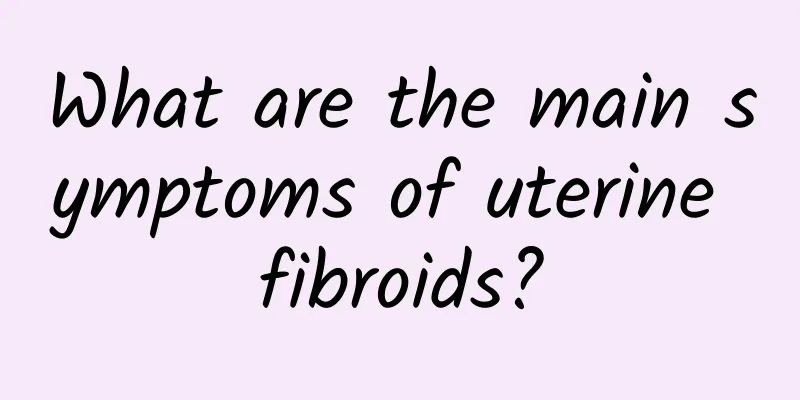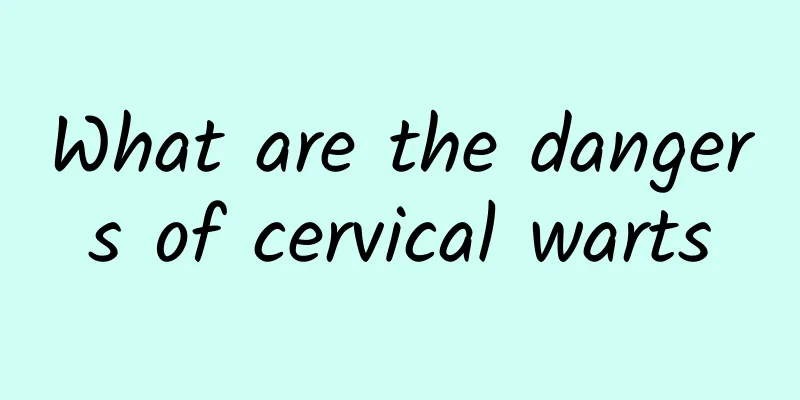What are the main symptoms of uterine fibroids?

|
What are the main symptoms of uterine fibroids? As a common benign tumor in women, early detection of uterine fibroids is of great significance. For female friends, it is very necessary to understand the common symptoms of uterine fibroids. So what are the main symptoms of uterine fibroids? Let our experts introduce them to you in detail. The main symptoms of uterine fibroids are: 1. Pain: Generally, there is no pain symptom. However, when the fibroids undergo red degeneration, or the pedunculated fibroids undergo twisting, or the submucosal fibroids stimulate the uterus to undergo spasmodic contraction, it may cause acute abdominal pain. 2. Anemia: If myoma causes long-term heavy menstruation, it can lead to secondary anemia. In severe cases, it will manifest as general fatigue, pale face, and shortness of breath. Symptoms such as panic.3. Increased vaginal discharge: This is common in larger intramural fibroids. As the uterine cavity enlarges, glandular secretions increase, resulting in increased vaginal discharge. When submucosal fibroids are accompanied by infection, the amount of vaginal discharge is also high and sometimes bloody. 4. Menstrual changes: Menstrual changes are the most common symptoms of uterine fibroids, which are manifested as increased menstrual volume, shortened or prolonged menstrual period, etc., and irregular bleeding may also occur. Submucosal fibroids may cause bleeding due to increased mucosal area and necrosis and infection on the surface. When intramural fibroids are larger, the uterine cavity becomes larger, the endometrial area increases, the uterus contracts poorly, or when combined with excessive endometrial hyperplasia, the menstrual cycle is shortened, the menstrual volume increases, and the menstrual period is prolonged. Subserosal fibroids and small intramural fibroids often have no obvious symptoms. Due to the influence of fibroids, the patient's menopause age often continues to after 50 years old. 5. Compression symptoms: As fibroids grow, they can compress nearby organs and cause various symptoms. For example, uterine wall fibroids or cervical fibroids can compress the bladder, causing frequent urination, urination disorders, and urine retention. Compression of the ureter can lead to hydronephrosis. Uterine posterior wall fibroids can squeeze the rectum and cause difficulty in defecation. The above are the main symptoms of uterine fibroids. I believe you have already understood them. If you have any questions about uterine fibroids, please go to a regular hospital for examination and treatment in time. If you have other questions about uterine fibroids, please consult our online experts or call our consultation phone number, and the experts will give you detailed answers. Fuhe Health Network wishes you a happy day and good health! Uterine fibroids http://www..com.cn/fuke/zgjl/ |
<<: Expert introduction: The harm of uterine fibroids should not be underestimated
>>: What are the main symptoms of irregular menstruation?
Recommend
What are the common treatment options for menopause?
Menopause is a common gynecological disease. Expe...
Routine blood test is an indispensable examination item before abortion
Pre-abortion examinations generally do not take u...
Anti-cancer New Year’s Eve dinner! Nutritionists strongly recommend Lucky Mushroom
Many people are busy at work and always eat out f...
Eating oatmeal for breakfast to control weight is equally effective whether boiled or soaked?
Office workers are busy and have no time to make ...
Why does my period come early and without pain?
Why does menstruation come early and without pain...
What are the causes of irregular menstruation?
What are the causes of irregular menstruation? Ex...
Is there a mass in the right abdomen of a female with pelvic effusion?
Pelvic effusion may cause a mass in the right abd...
Want a flat belly and hourglass waist? Do 3 exercises for 30 minutes every day to reduce belly fat
As an international supermodel and a frequent Vic...
What should you pay attention to the day before your abortion?
Many female patients will generally choose aborti...
Provide good care after abortion to protect women's reproductive health
Post-Abortion Care, or PAC for short, is a standa...
Beware! Amenorrhea may be caused by ectopic pregnancy
Nowadays, ectopic pregnancy seriously affects wom...
Is it normal to have lower abdominal pain on the fourth day after an abortion?
Whether it is normal to have lower abdominal pain...
Morning running VS night running! Which is best for weight loss?
Many people choose to jog for health reasons or t...
What should I do after uterine fibroid surgery? What should I pay attention to after uterine fibroid surgery?
What are the precautions after uterine fibroid su...
What causes abdominal pain after menstruation?
Lower abdominal pain after menstruation may be re...









